Gardeners Freezywater: Your Ultimate Guide to Thriving Gardens
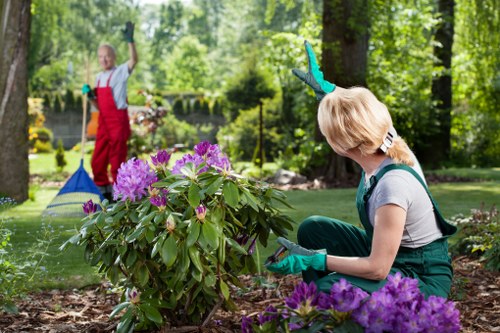
Introduction to Gardening in Freezywater
Freezywater is a charming locale that offers unique opportunities for gardening enthusiasts. Whether you're a seasoned gardener or just starting, Freezywater's climate and soil conditions provide a perfect environment for a wide variety of plants. This guide aims to help you cultivate a beautiful and healthy garden in Freezywater.
Understanding the local climate is crucial for successful gardening. Freezywater experiences mild summers and cold winters, which affects the types of plants that can thrive here. By selecting the right plants and utilizing effective gardening techniques, you can create a vibrant garden all year round.
Community plays a significant role in gardening in Freezywater. Joining local gardening clubs and participating in community gardens can provide valuable insights and support. These communities offer a wealth of knowledge and a platform to share experiences with fellow gardeners.
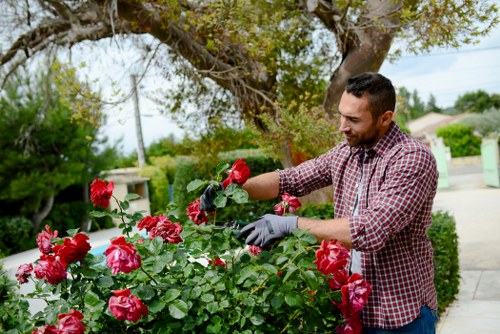
Choosing the Right Plants for Freezywater
Selecting the appropriate plants is the foundation of a successful garden. In Freezywater, it's essential to choose plants that are well-suited to the local climate and soil conditions. Perennials, annuals, and vegetables all have specific requirements that must be met to ensure their growth and prosperity.
Perennials: These plants return year after year, providing long-term beauty to your garden. Consider planting lavender, peonies, and hostas, which are well-adapted to Freezywater's climate.
Annuals: For a burst of color, annuals like marigolds, petunias, and zinnias are excellent choices. They thrive in the warm months and can be easily replaced each year.
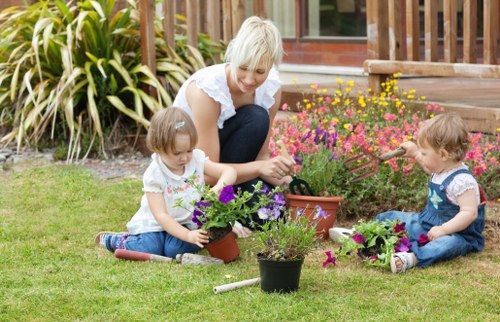
Soil Preparation and Maintenance
Healthy soil is the cornerstone of a thriving garden. In Freezywater, the soil can vary, so it's important to test its pH and nutrient levels before planting. Adding organic matter such as compost or well-rotted manure can improve soil structure and fertility.
Regular maintenance is key to sustaining your garden. This includes watering, weeding, and fertilizing. Freezywater's rainfall patterns may require supplemental watering during dry spells, especially for newly planted seeds and young plants.
Using mulch can help retain moisture, regulate soil temperature, and suppress weeds. Organic mulches like straw, wood chips, or shredded leaves are beneficial and enhance the garden's aesthetic appeal.
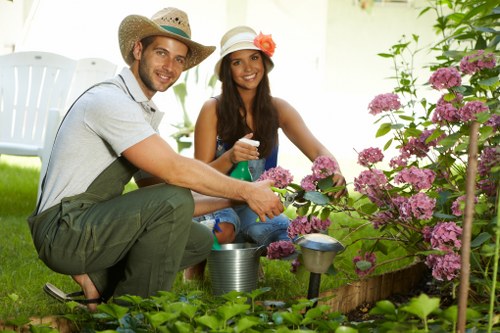
Pest and Disease Management
Gardening in Freezywater comes with its set of challenges, including pests and diseases. Identifying common pests such as aphids, slugs, and caterpillars early can prevent extensive damage to your plants.
- Aphids: These tiny insects can be controlled with insecticidal soap or by introducing natural predators like ladybugs.
- Slugs: Remove slugs by hand or use barriers like copper tape to protect your plants.
- Caterpillars: Neem oil or BTK sprays can effectively manage caterpillar populations.
Preventing diseases involves proper plant spacing, adequate watering, and ensuring good air circulation. Regularly inspect your plants for signs of disease and take immediate action to mitigate any issues.
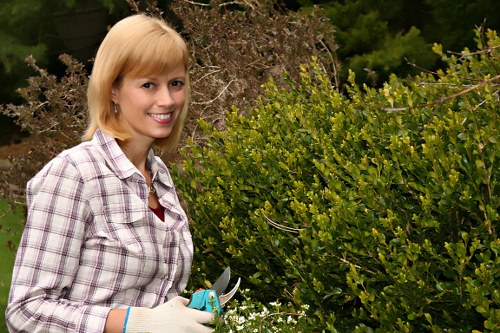
Local Gardening Resources in Freezywater
Freezywater offers a wealth of resources for gardeners. Local nurseries provide a variety of plants suited to the area, along with expert advice on plant care. Additionally, community centers often host workshops and seminars on gardening techniques and sustainable practices.
Libraries and online forums are also valuable sources of information. They offer access to gardening books, articles, and a platform to connect with other gardening enthusiasts in Freezywater.
Leveraging these resources can enhance your gardening knowledge and help you stay updated on the latest trends and techniques in horticulture.
Gardening Tips for All Seasons
Gardening in Freezywater requires adapting to the changing seasons. Each season brings its own set of tasks and challenges, making it important to plan accordingly.
Spring
- Prepare your garden beds by clearing debris and adding compost.
- Plant early spring vegetables like peas and lettuce.
- Prune trees and shrubs to encourage healthy growth.
Summer
- Regularly water your plants, especially during dry spells.
- Mulch to retain moisture and reduce weed growth.
- Harvest vegetables and flowers promptly to encourage continuous production.
Autumn
- Plant spring-flowering bulbs like tulips and daffodils.
- Rake fallen leaves and use them as mulch or compost.
- Protect plants from early frosts by covering them or bringing potted plants indoors.
Winter
- Plan and design your garden for the upcoming year.
- Prune dormant trees and shrubs.
- Maintain garden tools and store them properly.
Local Flora and Fauna in Freezywater
Freezywater is home to a diverse range of flora and fauna, making it an ideal location for gardeners. Understanding the local ecosystem can help you create a garden that supports both plant and animal life.
Native Plants
Incorporating native plants into your garden promotes biodiversity and reduces the need for excessive watering and fertilizing. Plants like the Freezywater fern, native wildflowers, and indigenous shrubs are excellent choices.
Wildlife Support
Creating habitats for local wildlife enhances the beauty and functionality of your garden. Installing birdhouses, bee hotels, and butterfly feeders can attract beneficial insects and birds that help control pests.
Pollinator Gardens
A pollinator garden featuring nectar-rich flowers ensures a healthy population of bees, butterflies, and other pollinators. This not only benefits your plants but also contributes to the overall health of the local ecosystem.
Sustainable Gardening Practices in Freezywater
Sustainability is a key aspect of modern gardening. Adopting eco-friendly practices can reduce your garden's environmental impact and promote long-term health.
Composting
Composting kitchen scraps and garden waste enriches the soil, reduces landfill waste, and lowers your carbon footprint. A well-maintained compost pile provides nutrient-rich material for your garden beds.
Water Conservation
Implementing water-efficient techniques such as drip irrigation, rainwater harvesting, and mulching can significantly reduce water usage. These practices ensure your garden remains hydrated without overusing precious water resources.
Organic Gardening
Avoiding synthetic pesticides and fertilizers promotes a healthier garden ecosystem. Using natural alternatives and encouraging beneficial insects helps maintain plant health without harmful chemicals.
Top 10 Nearby Areas to Freezywater for Gardeners
- Sunnybrook: Just 5 miles away, Sunnybrook offers extensive nurseries and botanical gardens.
- Greenfield: A 7-mile trip to Greenfield provides access to community gardens and gardening workshops.
- Mapleton: Located 10 miles from Freezywater, Mapleton is known for its organic farms and farmers markets.
- Riverside: Riverside, 12 miles away, features beautiful riverbank gardens and riparian plant species.
- Hilltop: A 15-mile journey to Hilltop introduces gardeners to hillside gardening and terracing techniques.
- Meadowvale: Meadowvale, 8 miles from Freezywater, is perfect for wildflower enthusiasts and pollinator gardens.
- Lakeview: Situated 6 miles away, Lakeview provides opportunities for water gardening and aquatic plants.
- Brookside: 9 miles from Freezywater, Brookside offers shade gardens and moist soil plant options.
- Pinecrest: Pinecrest, 11 miles distant, is ideal for conifer enthusiasts and evergreen plant varieties.
- Oakwood: 14 miles from Freezywater, Oakwood is renowned for its oak tree conservation and mature garden spaces.
Conclusion
Gardening in Freezywater is a rewarding endeavor that combines the beauty of nature with the satisfaction of cultivating your own space. By understanding the local climate, selecting the right plants, and utilizing sustainable practices, you can create a thriving garden that enhances your environment and brings joy throughout the year.
Engaging with the local gardening community and exploring nearby areas offers additional resources and inspiration. Embrace the unique opportunities that Freezywater provides and watch your garden flourish.
Frequently Asked Questions
- What are the best plants to grow in Freezywater?
Plants like lavender, peonies, hostas, marigolds, petunias, and zinnias thrive well in Freezywater's climate.
- How can I conserve water in my Freezywater garden?
Implement water-efficient techniques such as drip irrigation, rainwater harvesting, and mulching to conserve water.
- What resources are available for gardeners in Freezywater?
Local nurseries, community gardening clubs, workshops, libraries, and online forums provide valuable resources for gardeners.
- How do I manage pests naturally in my garden?
Use insecticidal soaps, introduce natural predators like ladybugs, and apply neem oil or BTK sprays to manage pests organically.
- What are some sustainable gardening practices for Freezywater?
Composting, water conservation, and organic gardening are key sustainable practices to adopt in Freezywater.